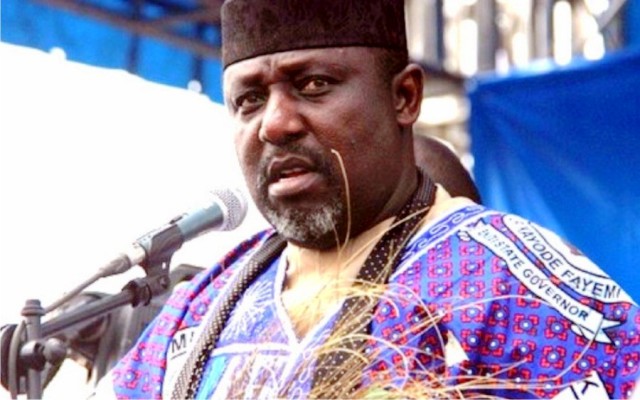Opinion
Imo, Okorocha And Ahithophel Politicians

McLaughlin once said, “It is the unhappy people who most fear change”. He further explains that when patterns & traditions are broken, new opportunities come.
This is the exact position in Imo State where those whom I refer to as ‘Ahithophel’ politicians are worried about the pattern of Governor Rochas Okorocha’s administration. They are afraid because change has remained their enemy. These personalities have continued to defend their faults and errors which prove that they have no intention of quitting them.
But the apprehension beclouding the state is that most of the desperate ‘Maradonas’ in the field of politics who do not see governance as a public contract with the populace, may want to jeopardize the efforts and programmes of the state government.
Analysts have said that the 2019 elections will be so interesting that political spectators are already drawing their foot close to the field of play to watch the game. Despite the measures put in place by the Independent National Electoral Commission, INEC to monitor and regulate its activities, the election cannot be 100 per cent free and fair.
There is no doubt that contestants will be seriously setting up plans and strategies to win elections at every cost. The high tempo of critics and opposing groups are close to add taste to politics, bringing to fore the beauty of democracy.
It is on this note that Governor Okorocha has to apply every mechanism wise enough to bequeath good legacies to the state. Woe unto the leader who does not heed the counsel of the servant and also woe unto the servant who does not speak the truth to his master.
In my view point, two features are prominent in this context; the sensibility of the governor to determine the proper counsel and the ability to acknowledge a sincere political personality.
There is no gainsaying the fact that good governance is gradually stabilizing in Imo State, but the most reason for the series of yet to be completed developmental projects scattered within the three senatorial zones of the state is because of the mundane counsel of some political bigwigs in the state. They are visionless stakeholders and selfish politicians who jostle for power for selfish aggrandisement.
This group of politicians are ready to compromise at the instance of a failing government. As such, whatever the governor does, rightly or wrongly, is satisfactory to such politicians just because they enjoy royalties from the government to the detriment of the masses.
Such personalities are domicile in various religious organizations, social public, family units, and rural communities. They take advantage of the raging political atmosphere to perpetuate erroneous actions. Such leaders can pretend not to know that people are dying under the pangs of poverty, hunger and frustration. They pretend not to understand the harsh position of the economy and high cost of living in the country.
Suffice it to say that it is the Ahithophels in government that truncated the beauty of governance and are now sucking the remaining life out of the downtrodden majority.
Our problem is that optimism seems to be in short supply. It is surprising that the same crop of Ahithophel politicians that condemned the demolition exercise embarked upon by Okorocha led administration are now pouring encomiums on him and commending his efforts for expanding the inter city roads, through his urban renewal projects to bring back the original beauty of the state.
Owerri, the Imo State capital, is naturally a tourism home, so serene to catch reasonable fun. There is night life in Owerri and this has to be upgraded, secured and sustained by the state government. I know that change could be difficult to realize, but its outcome is long lasting on the surface of the earth.
As it stands today, Imo people are scattered all over the world doing businesses, but to come home and develop their fatherland has become a problem. It is important to remind us that Imo belongs to all of us and not just to particular persons or group of desperados that parade the political arena.
Imolites are building the best houses, hotels, industries and magnificent structures outside their home state. They develop other states in Nigeria through their investment efforts. Good as this may sound, it is important to remind us that it is our responsibility to develop our dear state and preserve its abundance of human and natural resources, otherwise subsequent generations will experience downturn on its feeble foundations.
It is high time we produced the Anamccos, Dangotes, Hardis and more factories, and agricultural firms in Imo State. This will reposition the economic value of the state and keep the youths busy and productive.
I want to be convinced that the government of the All Progressives Congress (APC) in the state is working in this direction to match its words with actions. Let the ordinary citizens of Imo State be the focus of Okorocha’s administration. He should let his popular slogan ‘my people, my people’ have positive impacts in the lives of the people.
Princely is a journalist and public affairs analyst.
Onyenwe Princely
Opinion
Empowering Youth Through Agriculture

Opinion
Of Protests And Need For Dialogue

Opinion
Tackling Noise Pollution in Nigeria


